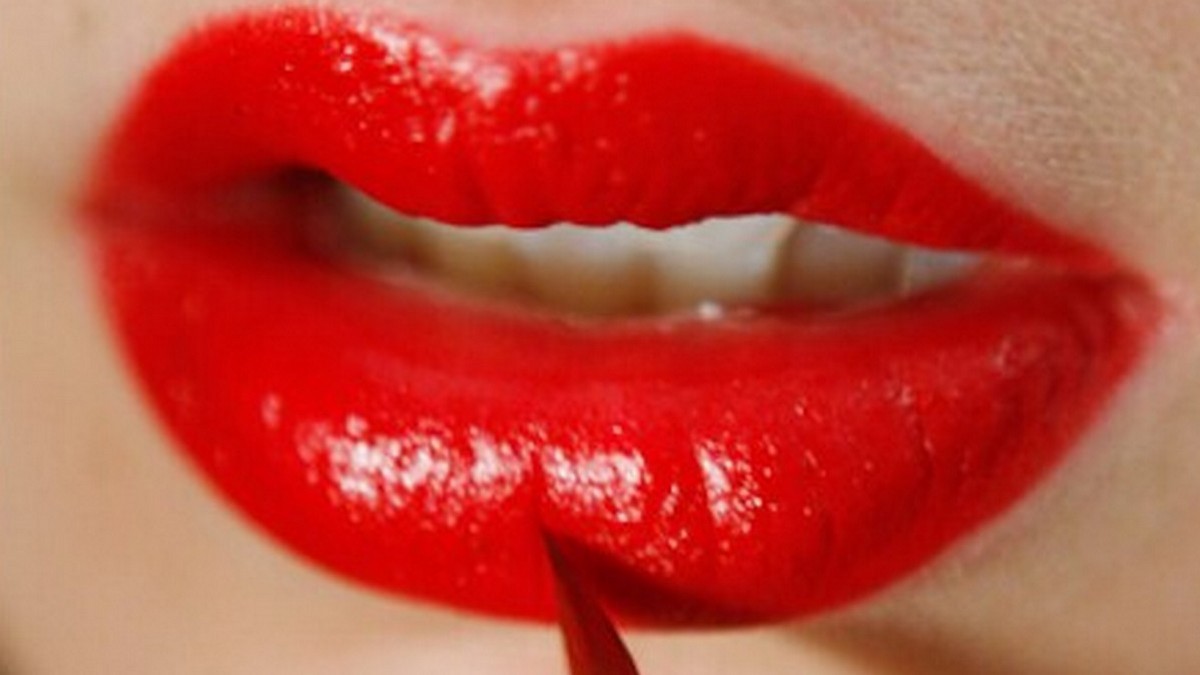Is a recession coming in the US?
Some say you can tell by simply looking at women’s lips.
But what do we know about this?
Let’s take a closer look:
Lipstick index
Experts say the lipstick index is a good gauge of approach of a recession.
According to CNN, the lipstick index was coined by then Estee Lauder chairman Leonard Lauder in the aftermath of the 9/11 attacks.
Lauder observed that the purchase of certain cosmetics seem to rise during times of recession.
For example, women swap more expensive purchases like designer handbags for smaller ones like lipstick.
According to CNN, fall that year saw lipstick sales spike 11 per cent.
Going back further, cosmetics sales shot up 25 per cent during the Great Depression.
According to The Independent, the concept returned to prominence after the banking crash and the 2008 global recession.
A number of articles including a New York Times entitled Hard Times, but Your Lips Look Great appeared.
In 2020, at the height of the COVID-19 pandemic, Estee Lauder’s CEO Fabrizio Freda said that the lipstick index was replaced as women donned masks and worked from home.
“The lipstick index has been substituted with the moisturising index,” Freda was quoted as saying by CNN. “But the concept of the index is still there.”
Impact Shorts
More ShortsThe theory was floated again in 2022 as market research firm Kantar Worldpanel discovered that UK sales of lipstick were nearly 10 per cent higher year-on-year in the 12 weeks leading up to 18 September.
Is a US recession imminent?
Not according to the data.
Sephora recently said it had a record year in sales.
Meanwhile, data from consumer research group Circana shows that sales of prestige beauty items has outpaced mass beauty sales.
Prestige beauty items increased nine per cent compared to just two per cent for mass beauty items in the first quarter of 2024.
However, a recession might be on the way in Australia.
As per ABC, data from the country’s Bureau of Statistics showed retail sales rose a seasonally adjusted 1.1 per cent in January.
That figure was a bit lower than what analysts predicted.
The bureau noted that retail sale are flat if you examine several months of data.
Retailer Harvey Norman posted a 45 per cent drop in its profit to $200 million.
Paul Zahra, ex-boss of upmarket department store David Jones, told ABC, “Now, when we’re seeing a downturn in sales — because I’ve been in this game for a little longer than I’d like to admit — we see that women particularly will go and actually spend money on a new lipstick to update their look, versus buying a new dress.”
“And that’s what we’re seeing, you’re seeing those high levels of compromise in their shopping,” Zahra, who runs the Australian Retailers Association, said.
“It’s across the board,” Zahra said.
“So when you look at cost increases, it’s across everything. Every household is under so much pressure, whether that’s insurance, utilities, food, and of course when they’ve paid all these things — this is what we’re seeing now — they don’t, they’re not updating their wardrobes, they’re not spending money on their homes.’
NAB’s chief economist Alan Oster told ABC a recession isn’t out of the question.
“It’s not silly [to suggest we may a recession],” Oster said.
“If we’re talking about 0.2 per cent [economic growth] for this quarter’s growth and we’re talking the same sort of numbers in the next quarters for March and June, you don’t need very much to go wrong to suddenly produce a [recession] but I’d be more inclined to say my definition of recession is when unemployment’s gone up 1 per cent within a year and hopefully we won’t get there.”
Over in the UK, 32 per cent of consumers said they bought a product to “treat themselves” over the past year.
Sales of colour cosmetics – the umbrella term for make-up products designed for skin, cheeks, eyes and lips – also went up in 2023.
What do experts say?
That the theory “does have some merit.”
Zubin Sethna, professor of entrepreneurial marketing and consumer behaviour at Regent’s University London and author of Consumer Behaviour told The Independent that though it is “not a universal law and may not apply in all situations or for all consumer products,” it does offer “an interesting insight into how consumer behaviour can adapt during challenging economic times.”
Philip Graves, a consumer behaviour consultant and author of Consumer.ology, said, “People still want to satisfy psychological desires when times are hard, so will look for ways to spend that make them feel good. But they will recalibrate this spending to adapt to the economic situation and – perhaps just as importantly – the economic sentiment, which provides social proof of what other people are doing.”
Richard Shotton, author of The Choice Factory, said “what other people are doing” massively affects our spending habits.
“We are a herd species that’s deeply influenced by what other people do – so if we see that a particular product is popular, we are more likely to consider buying it ourselves. That means a small increase in popularity can actually lead to a product becoming much more successful.”
With inputs from agencies


)

)
)
)
)
)
)
)
)



